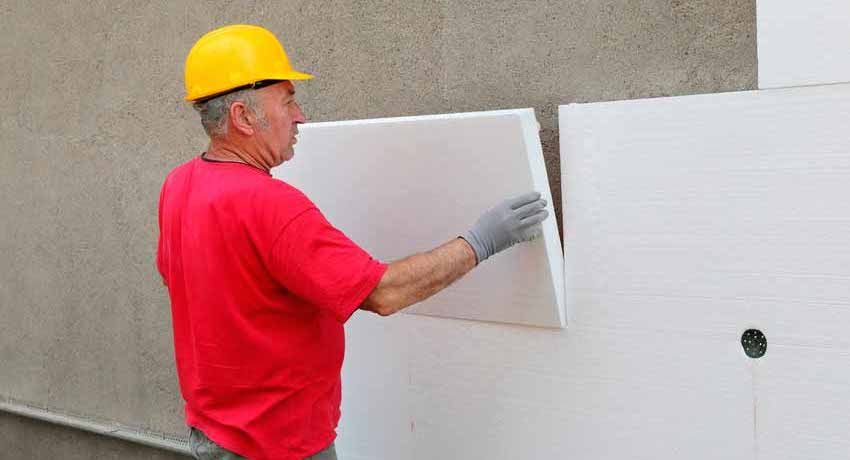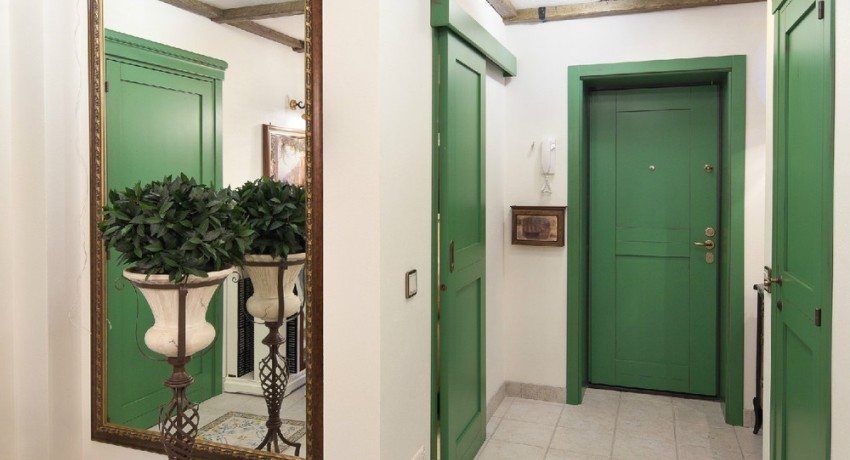Artificial stone for the countertop is a good alternative to natural material. According to its strength and performance characteristics, it is not inferior to granite. Due to the large variety of shades and decorative execution of the surface, products made of artificial stone are no less popular than similar products from a natural counterpart. On the features and types of tabletops made of composite material can be found in detail in this article.
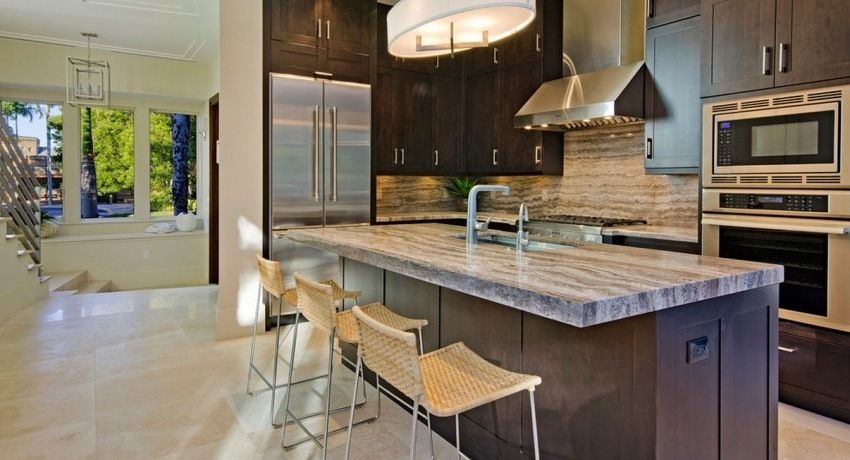
Artificial stone for countertops: Advantages and disadvantages
The artificial stone was widely adopted among other materials which are used for table-tops. It is formed by combining acrylic resin or quartz chips with mineral additives. Depending on the components used, there are two types of products: acrylic stone and quartz agglomerate.
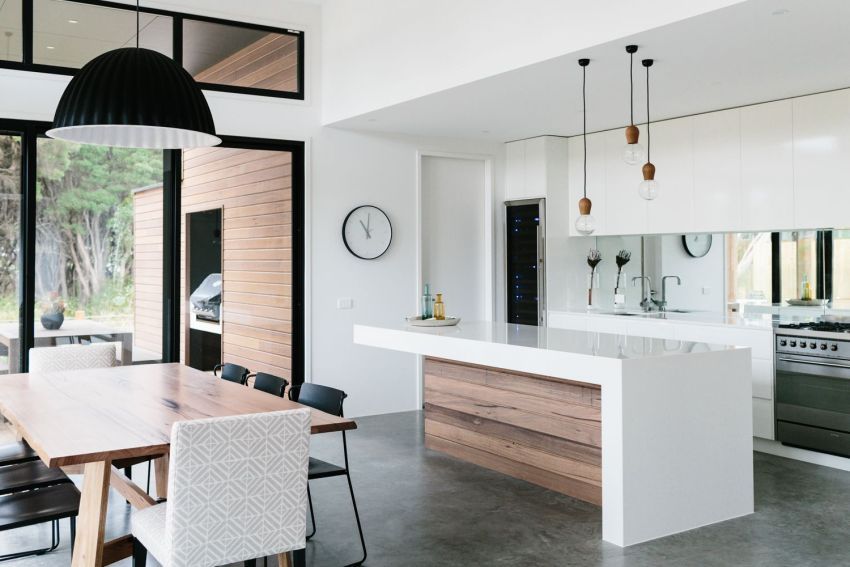
The material is characterized by a number of features that exceed natural stone and plastic. Stone countertops made of artificial stone, the price of which depends on the type and decorative features of the product, are notable for their increased strength, which makes it possible to compare this material with concrete. He endures mechanical stress. There are no scratches on the surface of the material. The product is able to withstand heating to a temperature of 150 degrees without losing the original appearance. The material does not burn. Countertops are characterized by a long period of operation, during which the appearance and color of the surface remain unchanged.
Due to the fact that the artificial stone does not contain pores in its structure, it does not absorb moisture, smells, does not dampen, microorganisms do not reproduce in it. To obtain the material using a special manufacturing technology. Raw mix is compacted in special forms by the method of vibration. Next, pressed products are heat treated, which leads to their polymerization, so that the plates become monolithic.
The material is resistant to temperature fluctuations, as a result, it can be used in bathrooms. Having a smooth surface, it is easy to clean with any cleaning and detergents that are unable to affect the aesthetic appearance of the product. Therefore, it is advisable to use for the kitchen stone countertop made of artificial stone.
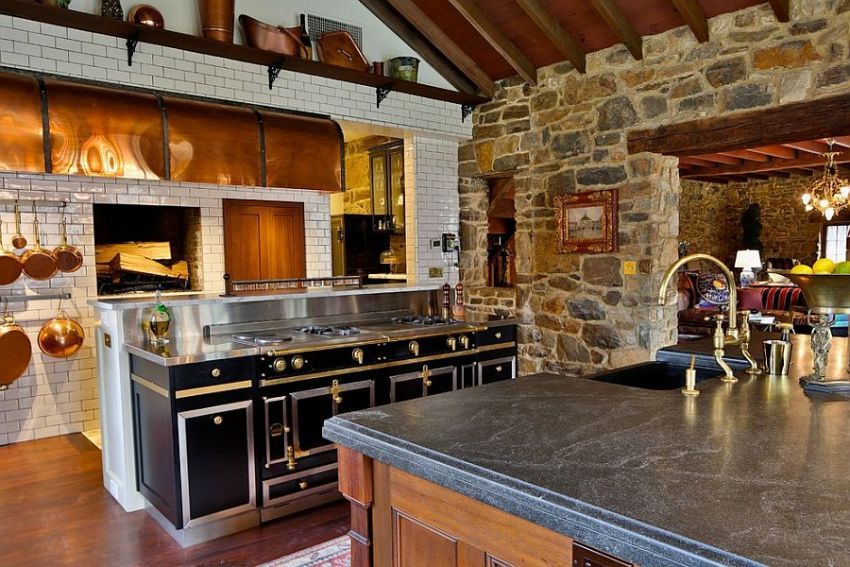
Thanks to the seamless technology of product manufacturing, smooth monolithic surfaces without visible joints and seams are obtained, which provides the opportunity to connect the countertop with a sink, window sill or table. The material is available in a wide range of colors. Here you can find models on the surface of which a drawing, emblem or photo is applied. Due to the plasticity of the material, the product can be made in various configurations, as well as with the design of the ends of different shapes.
The main disadvantage of countertops made of artificial stone is their high cost compared to more affordable products made of ceramic tiles, porcelain, MDF, laminated chipboard.
Acrylic countertops are very popular today. They are made of modern polymer, which consists of:
- mineral fillers in an amount of not less than 70% of the total mass;
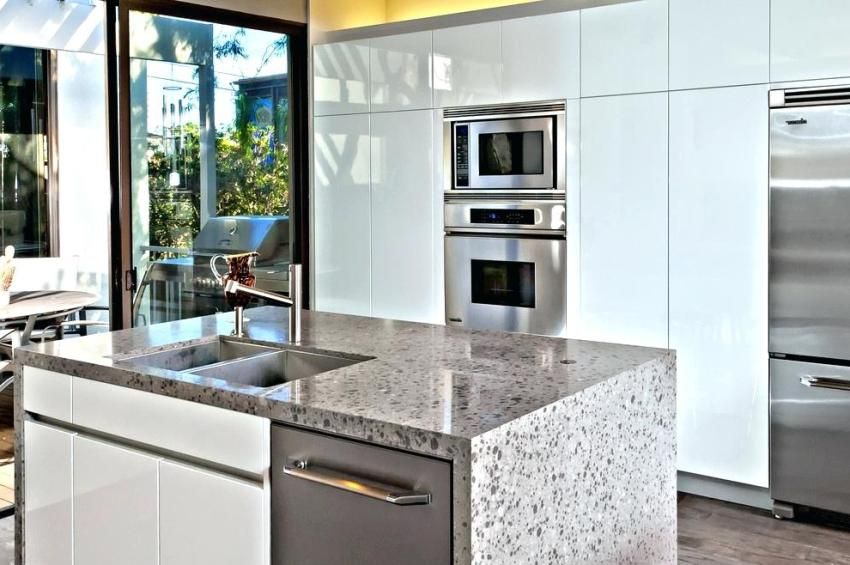
- acrylic resins for bonding components;
- aluminum hydroxide;
- hardeners;
- plasticizers;
- dyes.
The main advantages of the material are:
- homogeneous structure, which eliminates the formation of microscopic pores, which increases the environmental friendliness of the material;
- the seamlessness of the product, which is obtained as a result of the possibility of its grinding;
- moisture and vapor resistance;
- a large variety of colors and ornaments that do not fade over time;
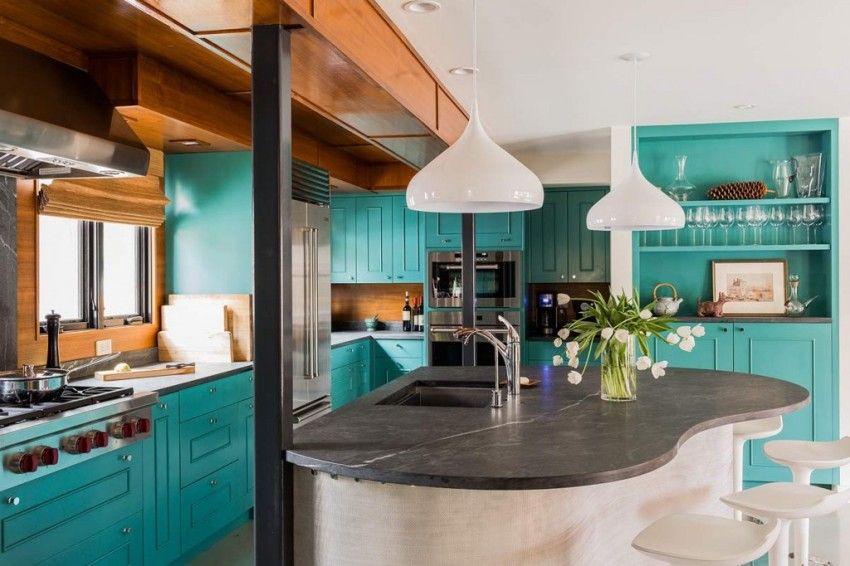
- the possibility of imitation on the surface of a type of natural stone or precious woods;
- low weight of the product, due to which it does not need special fastening and strengthening of the table structure;
- relatively warm to the touch surface;
- environmental safety of the material;
- easy care, which is limited to wiping the surface with a damp sponge;
- the ability to create elements of various forms and modifications;
- ease of processing that allows you to cut, drill holes, restore and polish the surface.
- the ability to repair the countertops made of artificial stone, which is to polish and polish the product in the event of visible scratches.
Among the negative characteristics are the following indicators:
- low resistance to mechanical stress, resulting in scratches, cuts and dents on the surface;
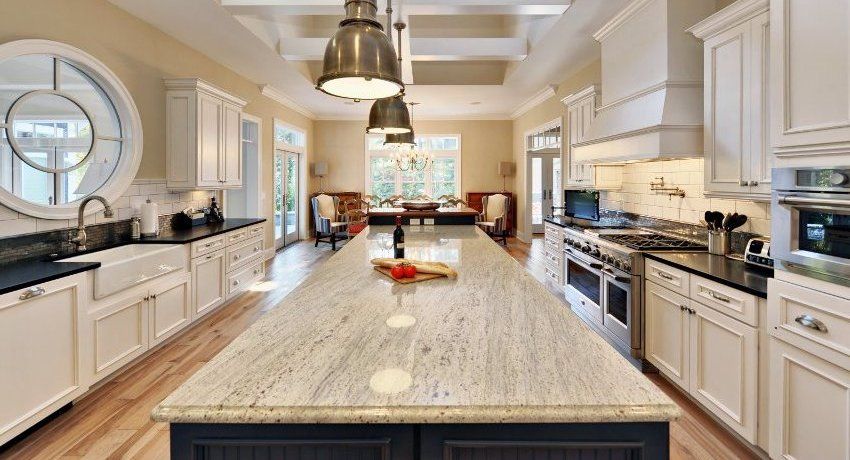
- exposed to acids and strong dyes that can be absorbed into the material and irreversibly damage the appearance of the surface;
- low thermal stability.
Helpful advice! When choosing acrylic tabletops, it is recommended to give preference to products of light shades, on which scratches are not so noticeable. It is better to choose a material with a rich stone texture or grainy pattern.
Quartz agglomerate is represented by a composite material, which consists of quartz, granite or marble chips in the amount of 90-96% of the total mass, polyester resin, dyes and decorative additives of various kinds in the form of glass or mirror particles.
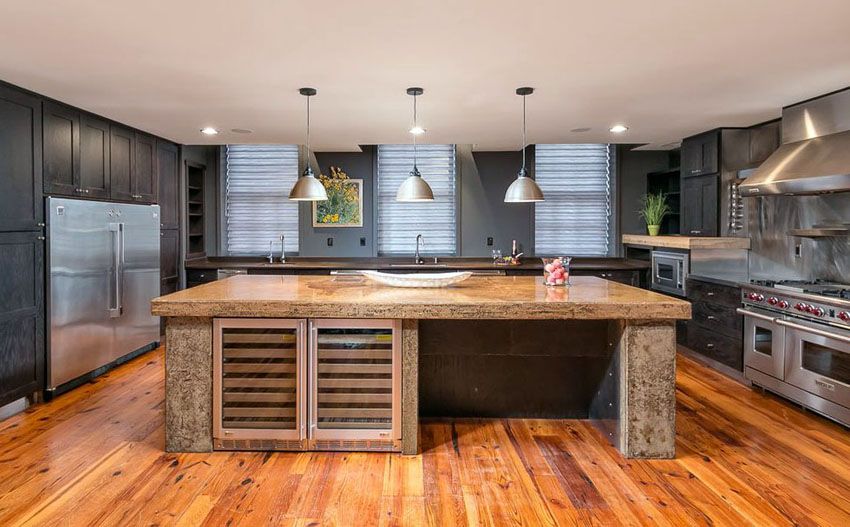
The material is characterized by a number of distinctive advantages:
- increased strength;
- long service life without loss of original technical and aesthetic characteristics;
- resistance to mechanical damage;
- moisture resistance;
- material hygiene, which is a consequence of the lack of pores where microorganisms can develop;
- acid resistance;
- short-term resistance to high temperature;
- easy to clean and clean;
- does not need special care with the use of special tools;
- has a wide range of colors.
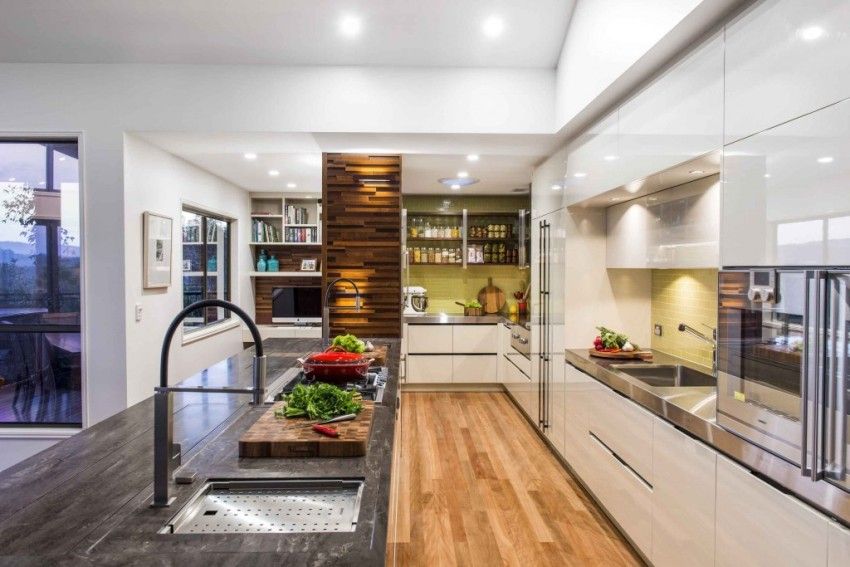
The disadvantages of the material include:
- high price;
- long manufacturing process;
- very cold surface;
- expensive and time-consuming installation of the product;
- conditional heat resistance;
- visible dark prints are formed on dark glossy surfaces;
- susceptibility to the use of abrasives in the form of rigid sponges and brushes that leave noticeable scratches on the surface;
- visibility of joints, if the length of the product exceeds 2 m;
- ability to use only to create simple straight geometric shapes.
Helpful advice! Do not put on the tabletop too hot object, which will leave a visible mark on the surface. To do this, use a special stand.
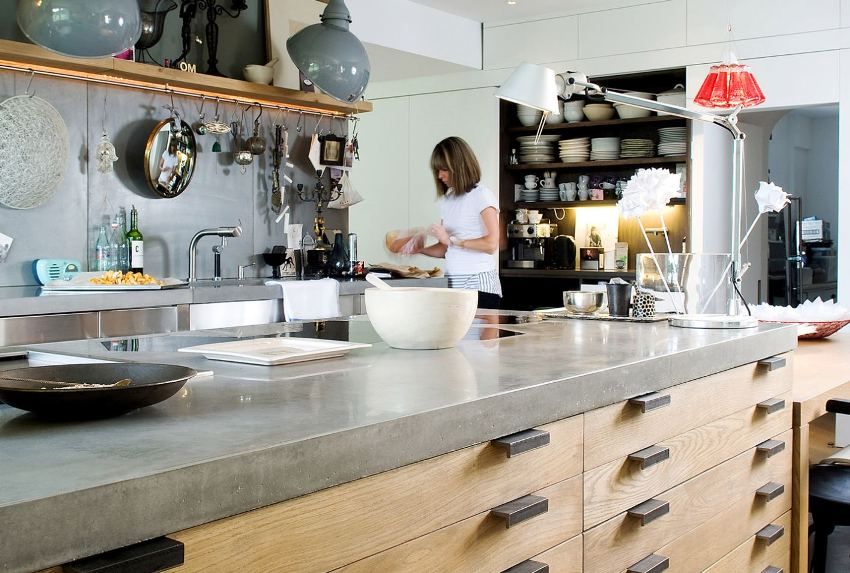
Countertops made of natural stone can bring comfort and refinement to the interior of the room. Natural stone blends perfectly with ceramics, wood, metal and stained glass. The material is in harmony with different styles of interior design, which allows it to be used in the decoration of kitchens, bathrooms, hallways, living rooms, offices and office space.
Products are characterized by moisture resistance, resistance to mechanical, thermal, thermal and chemical influences. These are wear-resistant and durable coatings, which for a long time retain their original color and appearance. However, natural stone countertops have considerable weight, which makes installation of the product a time-consuming and expensive process that requires certain skills in installation work.
For the manufacture of countertops using marble, granite, sandstone and onyx. Manufacturers also produce mosaic panels, which, having great artistic value, have a high cost.
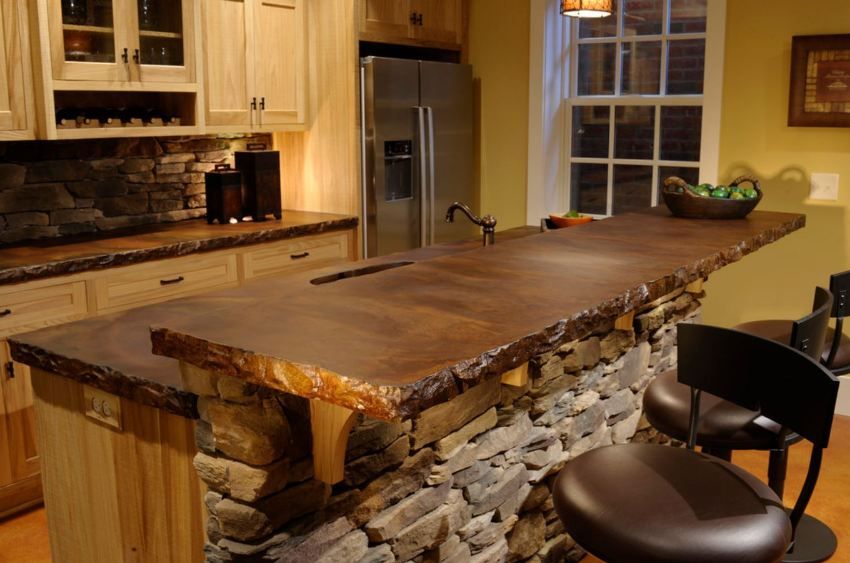
The most wear-resistant are countertops made of granite, impervious to moisture, high temperature, mechanical damage and the effects of acids. The product has a respectable and noble appearance, making it easy to fit into any room design.
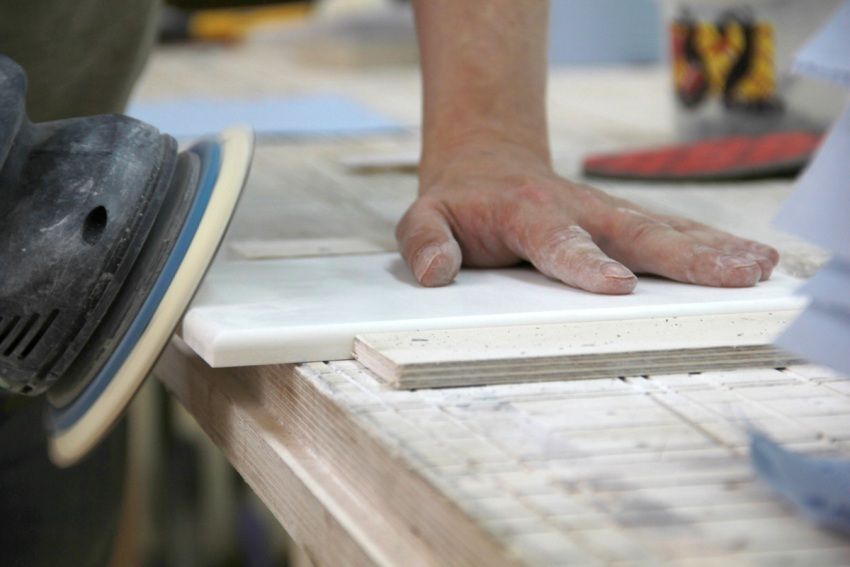
Based on numerous reviews, countertops made of artificial stone are in the ranking of popular surfaces, which, thanks to good technical, operational and aesthetic characteristics, are used in bathrooms, kitchens, living rooms, cafes and restaurants. Characterized by a variety of colors and textures, products ideally fit into any interior of the room.
